
PKR Could Be Wiped Out – PM Anwar Faces Real Test In Sabah
November 19th, 2025 by financetwitter
First, the good news – no matter which parties form the next Sabah government, they would realign with the federal government under Prime Minister Anwar Ibrahim. That had been the case in the past – previous Barisan Nasional and Perikatan Nasional federal governments – and it will be the same with the current Pakatan Harapan-led multi-coalition government, as well as any future governments.
The 17th Sabah State Election, with a record-breaking 596 candidates vying for 73 seats (averaging eight candidates per seat, with four-horse races being the minimum and even a 14-way contest), is very important because it is the first in a series of state polls – next up are Melaka, Johor and Sarawak – between now and 2028, by when Malaysia’s 16th General Election must be held.
Candidates in the super-crowded election include 74 independents, 73 from Parti Warisan, 72 from Parti Impian Sabah, 55 from Gabungan Rakyat Sabah (GRS), 46 from Parti Solidariti Tanah Airku (STAR), 45 from Barisan Nasional (BN), 42 from Perikatan Nasional (PN), and 40 from Parti KDM. PM Anwar’s Pakatan Harapan alliance has fielded 22 candidates, with Anwar’s own party PKR contesting 10 seats.
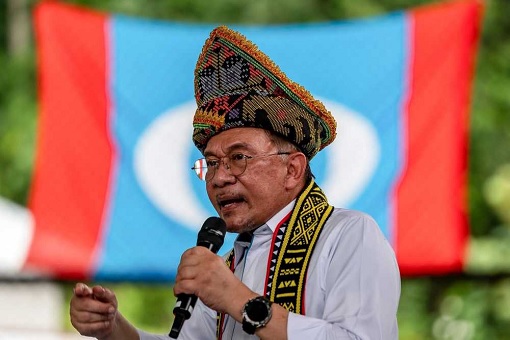
Sabah is arguably the only state in Malaysia where independent candidates stand an equal chance of winning, just like those contesting under the banner of powerful and rich political parties. The game is to win – either fairly or through vote buying – first, before hopping like a frog to the winning camp which promises rewards in the form of cash, lucrative projects or government portfolios.
The Borneo state is both interesting and strange because the Anwar-led Pakatan Harapan (PH) pact is currently a government coalition partner of the ruling Gabungan Rakyat Sabah (GRS), an alliance of eight local parties, while another coalition of parties, Barisan Nasional (BN), is in the opposition led by Warisan. This is unlike at the federal level, where all these coalitions are part of Anwar’s government.
It’s unlikely that a single party or coalition could win enough seats to form a simple-majority government in Sabah. Therefore, rivals could become allies, and foes could become friends after the state election. Heck, even after a state government has been formed, it could still collapse as existing “half-baked anti-hopping law” does not stop independents or party assemblymen from shifting support to a potential chief minister.
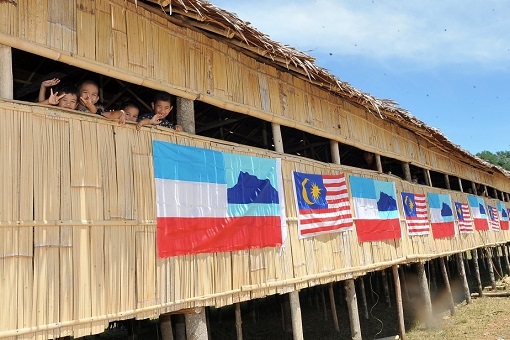
There’s a reason why Sabah election is also infamously known as a “frog season”. There’s no loyalty amongst thieves, let alone amongst politicians here. There are no permanent enemies or friends, only permanent interests. Before the election was called, GRS had 39 seats, Warisan had 14 seats, BN had 10 seats, PH had 7 seats, and Parti KDM had 1 seat (with 2 seats remained vacant). That may change.
Gabungan Rakyat Sabah (GRS), formed in Sept 2020, was itself an informal alliance which has gone through phases of betrayal, treachery, back-stabbing, coup, defection, corruption, back-stabbing and whatnot till today. To make it even more interesting, PH and BN have announced an electoral pact to mirror its federal partnership, but BN has refused to work with GRS, despite GRS stating its intention to continue working with PH.
This stemmed from bad blood between GRS and BN, when some BN members tried and failed to topple the government led by Sabah chief minister and GRS chairman Hajiji Noor in a 2023 political crisis known as the Kinabalu Move. At the time, five BN assemblymen chose to continue supporting Hajiji. Make no mistake – both BN and GRS still desire to continue working with PH because Anwar is the premier.

Now the bad news – even though Anwar is the prime minister, his Parti Keadilan Rakyat (PKR or People’s Justice party) could be easily wiped out. In the previous Sabah state election in 2020, PKR won only 2 seats. Mr Anwar was in the opposition camp back then. However, PKR was never a force to be reckoned with in Sabah in the first place.
Five years later today, Anwar is not only the 10th Prime Minister, but also controls the powerful finance minister. Yet, his PKR only dares to contest 10 out of 73 seats – a sign of the party’s weakness and Anwar’s lack of influence in Borneo. If he is so popular as he would like the people to believe, PKR or Pakatan Harapan should at least “double their share” of seats to contest.
It’s a lame excuse to say PKR doesn’t want to increase its number of seats because it doesn’t wish to jeopardize the chances of both allies BN and GRS. BN is contesting 45 seats and there’s no telling it may work with Warisan to form a state government without the need of GRS or PH. Likewise, GRS is contesting 55 seats and there’s no guarantee it won’t form a government with PN without BN or PH.

Warisan president Shafie Apdal – the previous Sabah chief minister whose party led the last state government between May 2018 and September 2020 – has his own political reason and calculation by contesting all the 73 seats on its own. He does not trust any of the Sabah political parties, let alone those from Malaya (Peninsular or West Malaysia).
“Before the elections they are quarrelling about allocation of seats. After the election, they will quarrel about which ministry they will have. If you don’t fulfill that, they will jump. So, what is the benefit for us to work with too many parties? You will be only trying to resolve the needs of that particular party, the leaders of that particular party,” – said Shafie Apdal.
While it appears that Warisan has been “pretty quiet” over the years, in reality, it has been working silently very hard in the rural areas, especially in its strongholds on the east coast of Sabah. This “less talking, more working” approach might appeal to voters. Local Sabahans may prefer a local party like Warisan compared to a messy GRS, which has worked in the past with PN and now with PH.
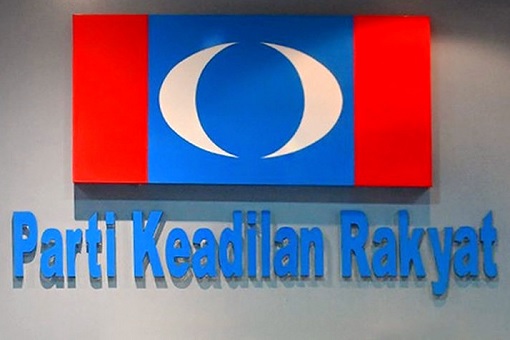
On paper, Anwar’s PKR should not only be able to defend its 2 seats, but also capture more seats for obvious reasons. As the finance minister holding the purse strings, he could – easily and quietly – buy votes, which could be as cheap as bribing each Sabahan with “Gardenia” bread as Islamist party PAS suggested recently. It would be both disaster and humiliation if PKR performs worse than in 2020.
That explains why the prime minister is under tremendous pressure to ensure PKR does not get annihilated. By hook or by crook, he must at least defend 2 seats for PKR. Anwar was so desperate that out of 10 PKR candidates for the Sabah election, four were “parachute candidates” – referring to candidates who jumped from other parties or candidates who had just joined the party.
Narcissist Anwar was also so afraid of losing face if PKR is defeated that he has even recruited Yamani Hafez, the son of Musa Aman, who in turn was the most corrupt former Sabah Chief Minister but was promoted as Sabah Governor by the Anwar administration. Yamani was once a member of UMNO before hopping to Parti Pribumi Bersatu Malaysia (Bersatu) and now PKR.
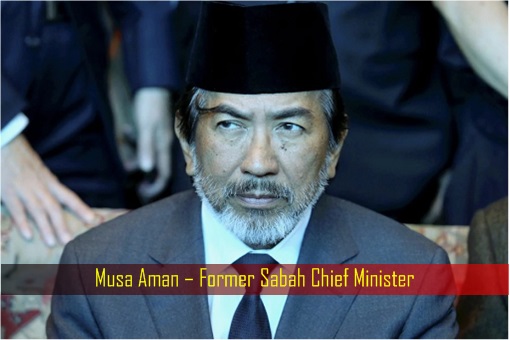
Similarly, PKR’s Melalap candidate, Jamawi Jaafar, also once joined UMNO and was with Parti Warisan when Sabah was under the party’s administration. However, when Warisan fell in 2020, Warisan returned to UMNO and when UMNO was not on the same page with GRS in 2023, Jamawi jumped ship to GRS and is now in PKR. And you can bet your last dollar that he will jump again.
PKR’s another frog, George Hiew, was originally from DAP, before he jumped to join Warisan and managed to become an assistant minister. But when the party fell, he switched sides to GRS, and is now in PKR. Loyalty is a rare commodity amongst these parachute candidates. Even if they all win, PKR could still lose all the seats overnight just like how the party lost everything in the Melaka state election in 2021.
But the risk of PKR candidates defecting after winning is not the only problem faced by the party. A key issue expected to feature during the campaign period is last month’s Kota Kinabalu High Court ruling that the Malaysian federal government had acted unlawfully by failing to fulfil Sabah’s 40% entitlement for nearly 50 years. This has forced the Anwar administration to do damage control.

In a “carefully calculated move”, obviously after having consulted with the Prime Minister Office (PMO), the Attorney-General’s Chambers (AGC) has said that it will not appeal the ruling. Yet, at the same time, the AGC has challenged parts of the court’s decision. Forked-tongue Anwar contradicted himself when he told Parliament that the Federal Government’s “appeal” is limited to specific aspects of the court’s judgment on the issue.
Anwar might think he could hoodwink Sabahans by spinning and twisting that his Madani government cares about the Borneo state. However, the resignation of UPKO President Ewon Benedick from the Cabinet and the withdrawal of UPKO from Pakatan Harapan over disagreement with the AGC’s stance speaks volumes about the federal government’s hypocrisy, lies, and untrustworthiness.
It doesn’t take a genius to tell it was purely political drama when the Anwar government took almost 4 weeks (26 days to be precise) to announce (on Nov 12) that it would not appeal since the day Kota Kinabalu High Court ruled on Oct 17 that the Federal Government had acted unlawfully and beyond its constitutional authority by failing to fulfil Sabah’s right to 40% of federal revenue from 1974 to 2021.
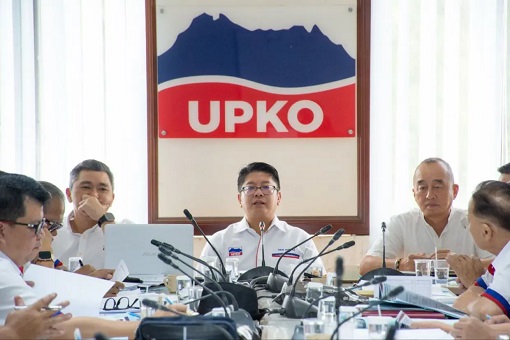
Even then, it was only after Ewon’s resignation, followed by UPKO withdrawal, that Anwar scrambled to pretend that the federal government would not appeal (which was a lie and a scam). Rubbing salt on the wound, DAP secretary-general Anthony Loke tried to defend his boss Anwar by attacking Ewon, only to be grilled by the UPKO president – exposing Loke’s ignorance and lies.
Loke, known for keeping quiet when the ethnic Chinese are being bullied, was speechless when he was challenged by Ewon to explain to the people of Sabah the “eight points” the federal government wants to challenge concerning Sabah’s 40% claims. Loke had falsely accused Ewon of not expressing his objections during Cabinet meetings on the 40% claim.
No matter how Anwar twists the spin that his government is not cheating the people of Sabah or plundering the state’s resources, the fact remains that Sabah is one of Malaysia’s poorest states despite being a major contributor to the country’s oil and gas output, and it is still locked in negotiations with the federal government on returning to its entitlement of 40% of its revenue, which it says is crucial for development.

Beside Sabah, another Borneo state – Sarawak – is also pushing for one-third of the parliamentary seats at the federal level to be allocated to them as stipulated in the Malaysia Agreement 1963. Again, chameleon Anwar said the time is not ripe for the one-third seats allocation – another proof that the federal government has been cheating and lying all along.
The Malaysia Agreement signed in 1963 formed the basis of the formation of the Federation of Malaysia. It recognises Sabah and Sarawak not as mere states but as equal partners with West Malaysia. It was the Federal Government’s refusal to recognize the agreement it had signed in 1963 that has sparked the “Sabah for Sabahans” sentiment – a desire for local-based parties to govern Sabah exclusively.
Crucially, many Sabahans still remember and view Anwar with distrust because when he served as former PM Mahathir Mohamad’s deputy in government from 1993 to 1998, Anwar was involved in covert operations to alter the demographics of the state by issuing citizenships to illegal Muslim refugees from the neighbouring islands of southern Philippines and Indonesia.

The biggest factor which terrifies PKR is the unpredictable uprising of Gen-Z, who shocked both the Sabah state and Anwar government last year when thousands gathered to demand justice for the suspicious death of Form One student Zara Qairina Mahathir. Her death has sparked nationwide protests with many Malaysians demanding an end to a culture of bullying in the education system.
The same Generation Z, referring to individuals born approximately between 1997 and 2012, was also responsible for the rally to protest the corruption scandal plaguing the Hajiji administration, but has been shamefully protected by PM Anwar with the lame excuse that the anti-corruption agency could not act due to lack of evidence – despite overwhelming video clips and key witness.
Now, the Gen-Z could retaliate over the bread and butter issue – water disruptions, lack of electricity, and rising cost of living hitting university students. When the youngsters started burning a caricature of Anwar over widespread corruption in Sabah, it was not merely a protest, but a “warning” to both state and federal governments.

And while bread and butter issues will dominate the Sabah election, the state polls are also a barometer of the level of support that Anwar’s daughter Nurul Izzah – newly elected to the post of deputy president of her father’s political party – can galvanise. The election of Nurul in May had sparked accusations of nepotism, incompetence, and dynasty politics.
If Anwar’s daughter fails to increase PKR’s seats, PKR would be in trouble not only in the coming state elections in Melaka, Johor and Sarawak, but also the 16th General Election. Anwar Ibrahim could be just a 1-term prime minister while Pakatan Harapan may end up as the opposition again. Sabah’s new government may switch sides, the same way GRS abandoned Perikatan Nasional after the 15th General Election.
No comments:
Post a Comment